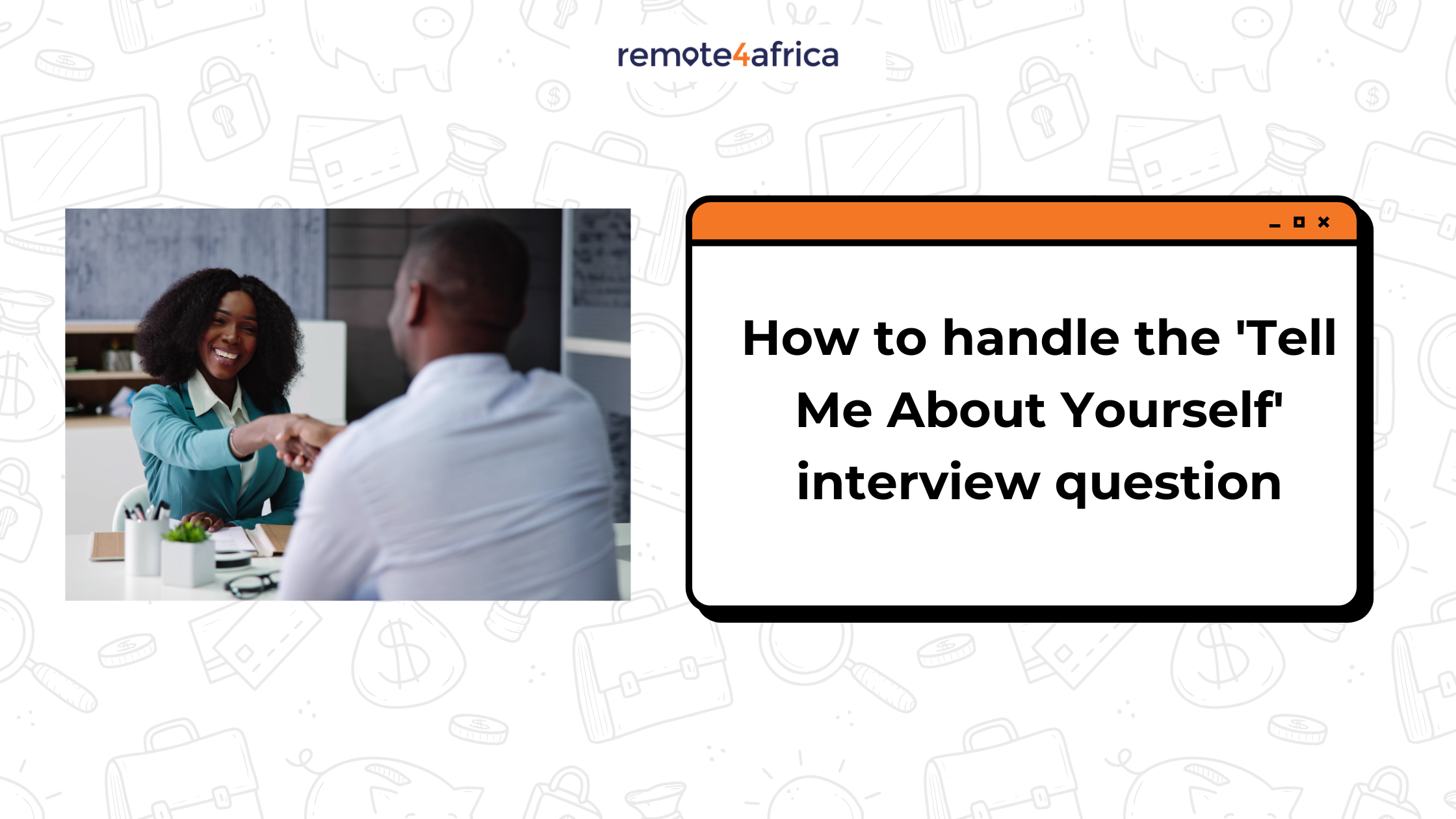Tips for Handling the "Tell Me About Yourself" Interview Question

The "tell me about yourself" question is one of the most common and often the first question an applicant is asked during interviews. Though it may seem like a simple opener, it is an important question. This is because the way you respond to it can set the tone for the rest of the conversation.
Find resources to help you land a remote job
The key to answering this question effectively is to masterfully deliver a brief but impactful speech about job-related aspects of your personality. A strong answer can help convince the interviewer to hire you. Here are some tips on how you can structure your response to leave a lasting first impression:
Ensure You Speak Good English
First and foremost, ensure that you speak fluently and clearly. This is especially crucial if the interview will be conducted in a language that isn't your first.
Fluency and clarity will be a testament to your communication skills and professionalism. In contrast, speeches characterised by poor use of language can be a huge setback to your chances of being hired.
Before heading for the interview, conduct practice sessions on what you’ll likely face on interview day. Speak your answers out loud as you would at the interview. Focus on clear pronunciation and try to avoid excessive use of filler words such as "ehm," or "ehh."
Avoid the use of any word you are not completely sure of its meaning. Do not speak hurriedly so that the other party will have time to assimilate what you say. Be concise in your storytelling. Stick to points that will boost your chances of landing the job.
Never Contradict Information on Your CV/Resume/Cover Letter
It is bad to contradict information you’ve provided on your CV, resume, or cover letter while answering the "Tell Me About Yourself." Doing so can make you appear unprofessional, not attentive to detail or even a liar, all of which can disadvantage you.
Hence, it’s essential that your verbal answer is in congruence with information you’ve documented and earlier provided to those interviewing you. Hiring managers are looking for consistency. If your responses are inconsistent, they may decide you are not the person they need.
State Your Years of Relevant Work Experience
Most roles you see on job boards usually require some years of relevant work experience (apart from a few entry-level jobs). If experience is one of the job’s requirements, start by briefly disclosing the number of years you've spent in the profession or industry.
For example, you might say, “I have five years of remote work experience in digital marketing, focusing on SEO and content creation.” This sets the stage for a deeper discussion of your expertise and career progression.
Explain Your Notable Work Achievements
After mentioning your level of experience, expand on it by modestly explaining your most important achievements over that time.
Tell your interviewer the number of projects you’ve completed, stating if those projects were in one industry or across multiple industries. Mention specific milestones you achieved.
For example, that you helped increase sales by 25% or led a team to launch a successful product. Such milestones demonstrate your ability to add value to the company.
Discuss the Extent of Your Industry Knowledge or Expertise
Discussing your knowledge of the industry helps to further solidify your competence and suitability for the job. Talk about the depth of your knowledge and understanding of industry trends, tools, or technologies
If you're in IT, for example, you could mention your familiarity with cutting-edge technologies like AI or cloud computing. If you're in digital marketing, you might highlight your expertise in emerging platforms like TikTok or LinkedIn Ads.
In a nutshell, industry knowledge portrays you as someone clever, proactive, research-oriented and committed to staying informed and relevant.
Disclose Your Academic Qualifications
Academic qualifications are another condition that is often attached to job descriptions. While a role may require a bachelor’s degree as a minimum requirement another may require a higher (or lower) qualification.
You could say "I hold a bachelor's degree in economics and development studies from Covenant University and a master’s degree in mathematical economics and econometrics from Edinburgh University."
This shows the interviewer that you have a strong foundation in the key academic theories or concepts necessary for the role.
Mention Your Professional Certifications
Professional certifications complement your academic qualifications, helping to give you an edge in a competitive labour market.
Whether it’s a language proficiency certification, a PMP certification, or a specialised software certification, certifications add credibility to your expertise and enhance your employment chances.
Mention any of your certifications that directly relate to the job you’re being interviewed for, and briefly explain how they’ve aided your professional growth.
For example, you could say, “I’m a certified project manager. The certification has enabled me to effectively manage cross-functional teams and lead multiple successful initiatives.”
Conclusion
The "tell me about yourself" question is usually the first question an applicant is asked during an interview session. It is therefore hugely important since it is a great opportunity to make a strong first impression on the interviewer and set a positive tone for the rest of the interview.
The tips provided above should help you answer the question in flying colours. This post offers additional insights into the “tell me about yourself” question.
